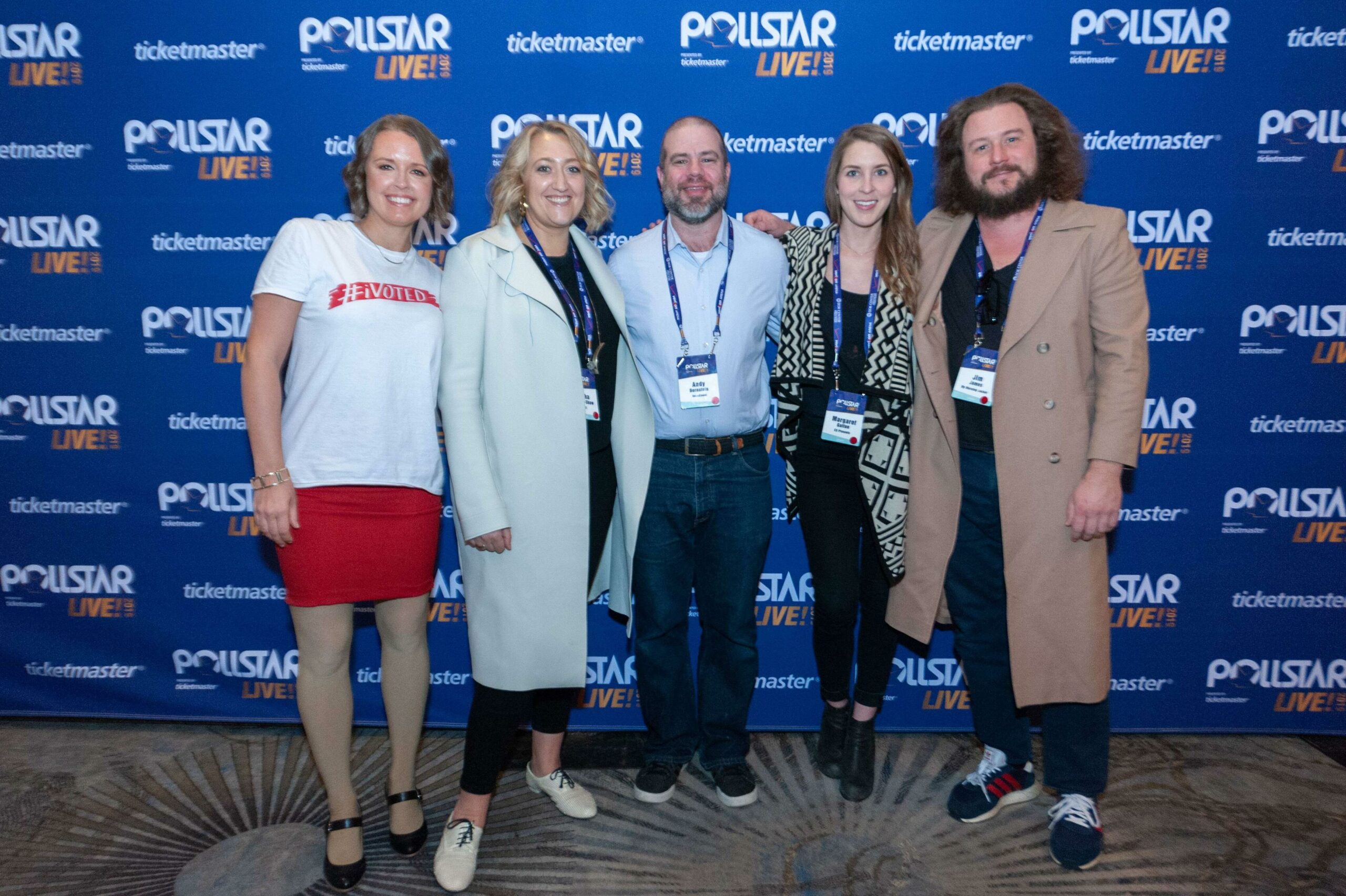Features
Voting In Concert: How Promoters, Artists and You Can Make Political & Social Change

Julia Lofstrand – Voting In Concert Panelists
Emily White, Marika Anthony-Shaw, Andy Bernstein, Margaret Galton and Jim James
From Pete Seeger to U2, music and activism have long gone hand in hand. But as American politics intensify by the day, artists and industry professionals have increasingly identified opportunities to drive social engagement.
Leading voices in the field gathered at Pollstar Live! on Tuesday for “Voting In Concert: How Promoters, Artists and You Can Make Political & Social Change,” a panel focused on discussing the intersection of live music and politics in 2019.
“I’m originally from Wisconsin, and the 2016 presidential election there was decided by 22,000 votes and change,” said #iVoted founding partner and panel moderator Emily White. “As a music industry person, I instantly thought, ‘That’s [Milwaukee’s] Bradley Center — now the Fiserv Forum.’ And I thought, ‘Why don’t throw a sick concert and tie in voting?’ That’s exactly how #iVoted was born.”
White and her fellow panelists — PLUS 1 founder and former Arcade Fire member Marika Anthony-Shaw, HeadCount executive director Andy Bernstein, C3 Presents talent buyer Margaret Galton and My Morning Jacket frontman Jim James — agreed that the intense connections artists forge with their fans naturally facilitates non-partisan political engagement efforts.
With HeadCount, Bernstein has worked to establish “activism villages” and “participation rows” at concerts, where fans can register to vote and then proceed to what he identifies as the next “rungs” on the “engagement ladder”: voting and activism. Concertgoers have become familiar with voter registration efforts, but Bernstein said that the experience can be a more holistic one; at the Virginia festival Lock’n, for instance, at least 20 organizations turned out to interface with attendees.
And contrary to what some might think, such efforts don’t need to be isolated from the show itself.
James’ case is emblematic. After he signed on with #iVoted, White said other “dominoes fell,” from Dawes to Playboi Carti. In November, 130 venues nationwide activated for election night concerts.
Anthony-Shaw emphasized the importance of “presenting these things as part of a culture of the show, not just this side thing that’s happening, but as a part of the entire live experience that you’re going to participate in.” It’s about opening the door, she said, to receptive fans who might otherwise not know how to become engaged.
To illustrate her point, Anthony-Shaw recalled a concert she played at Northern California’s Shoreline Amphitheater when she was still a member of Arcade Fire. At their merch booth, the band was selling copies of Tracy Kidder’s book Mountains Beyond Mountains, which followed Dr. Paul Farmer as he worked to combat tuberculosis in impoverished areas of Haiti and Peru. A nurse who attended the show bought and read the book — and when the ebola epidemic broke out in West Africa, she volunteered to lend her expertise. Arcade Fire proved a focal point in her activist awakening, Anthony-Shaw said, and that awakening extended far beyond simply getting to the voting booth.
According to James, activist groups like HeadCount and #iVoted play a pivotal role as well. “Artists, we’re in our heads a lot,” he said. “We can get depressed or moody or whatever, and we’re so dealing with our own existential funk that we kind of forget that we can make a difference.”
But given the existing resources, there’s little excuse not for musicians to drive that type of engagement. “You hear about people being afraid to lose fans or being afraid to stand up and speak their truth,” the musician mused. “We gotta get past that. I think that day and age is over. We all gotta stand up and speak out for what we believe is right, but always do it with love. I’m just so tired of all the hatred we see every day from all over the place.” In a zen moment, James suggested that “universal and acceptance and equality” isn’t just a “hippie dream.”
While work remains to be done, Bernstein highlighted the music sector’s accomplishments thus far. “The music industry in general has so many people who are willing to take a few minutes out of their other businesses to see how they can give back,” he said. Our industry does a really good job and our industry deserves to congratulate itself for keeping these things going.”